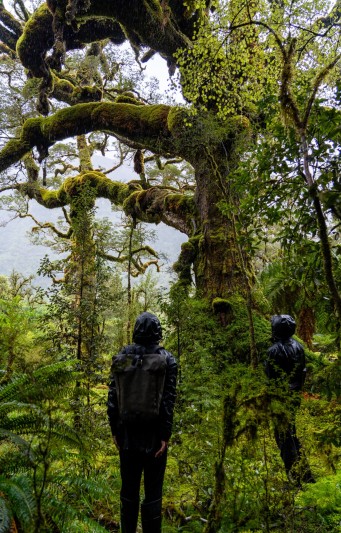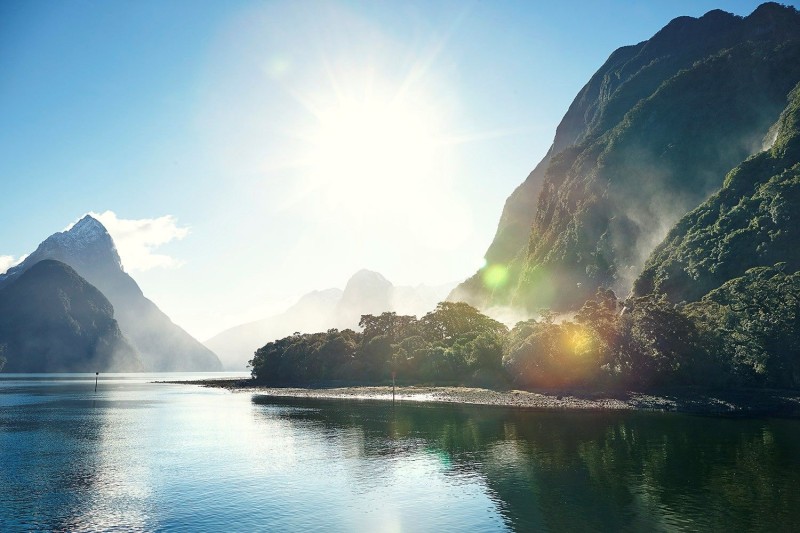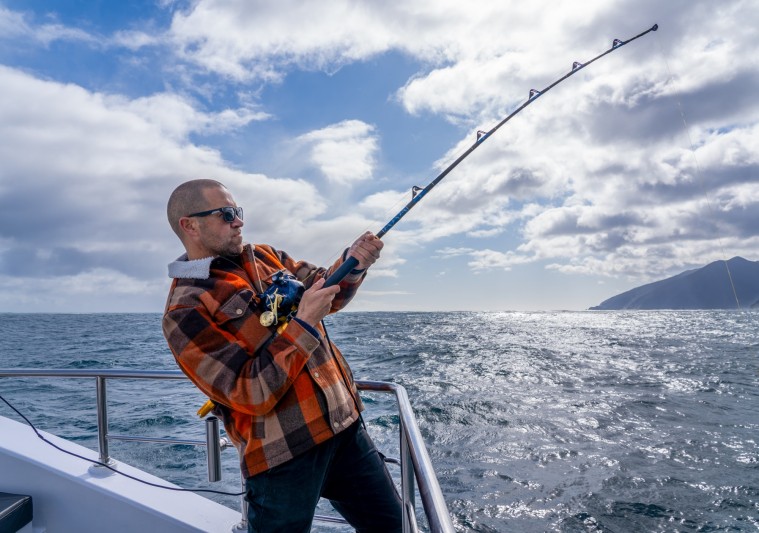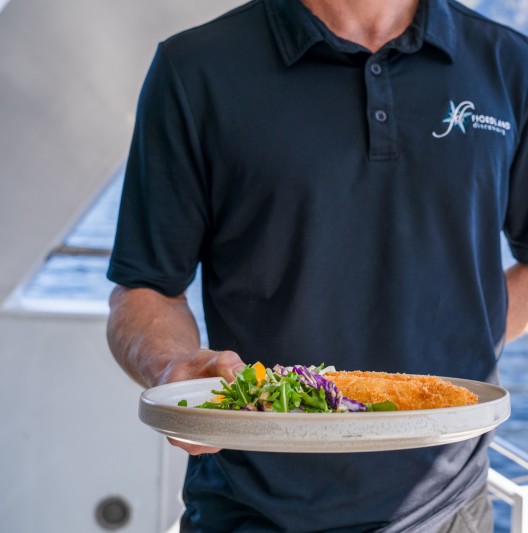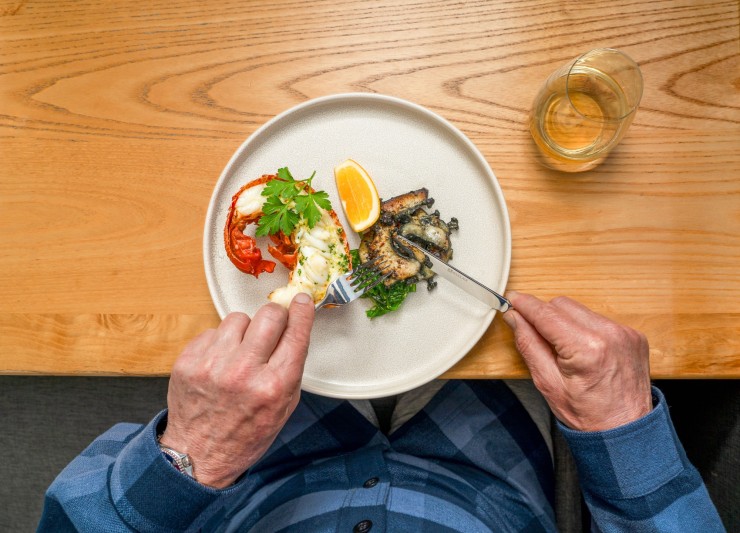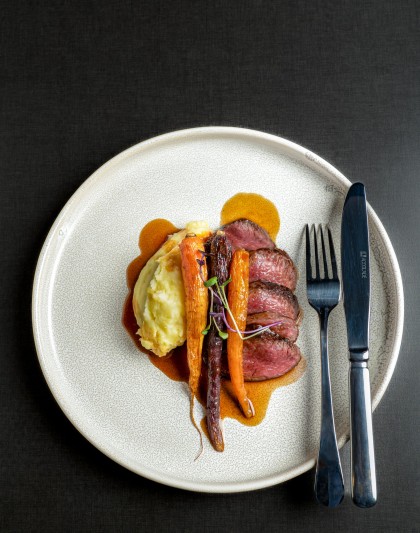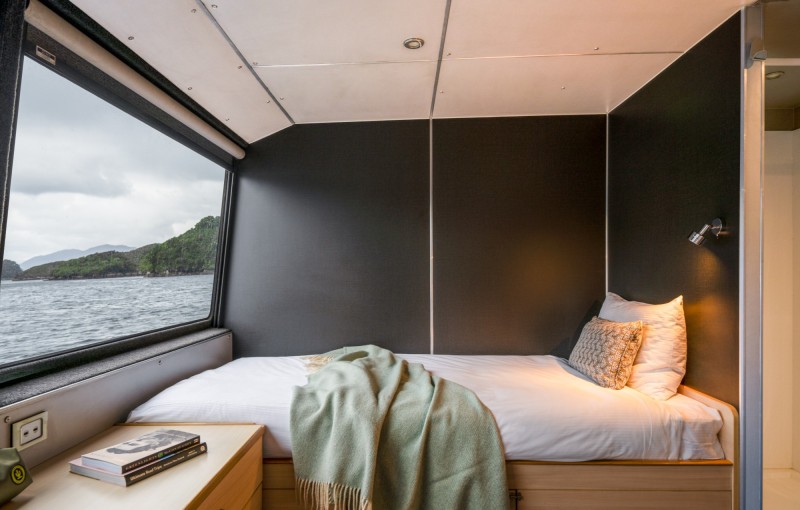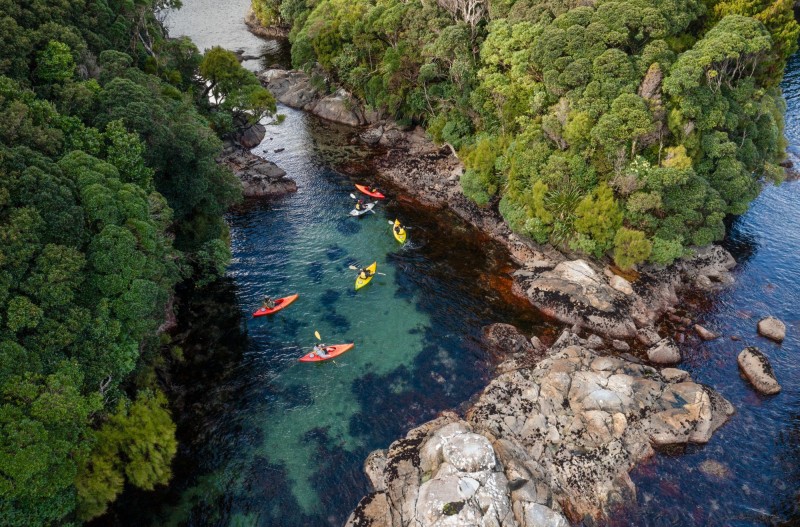- 23:54
- +64 3 441 3322
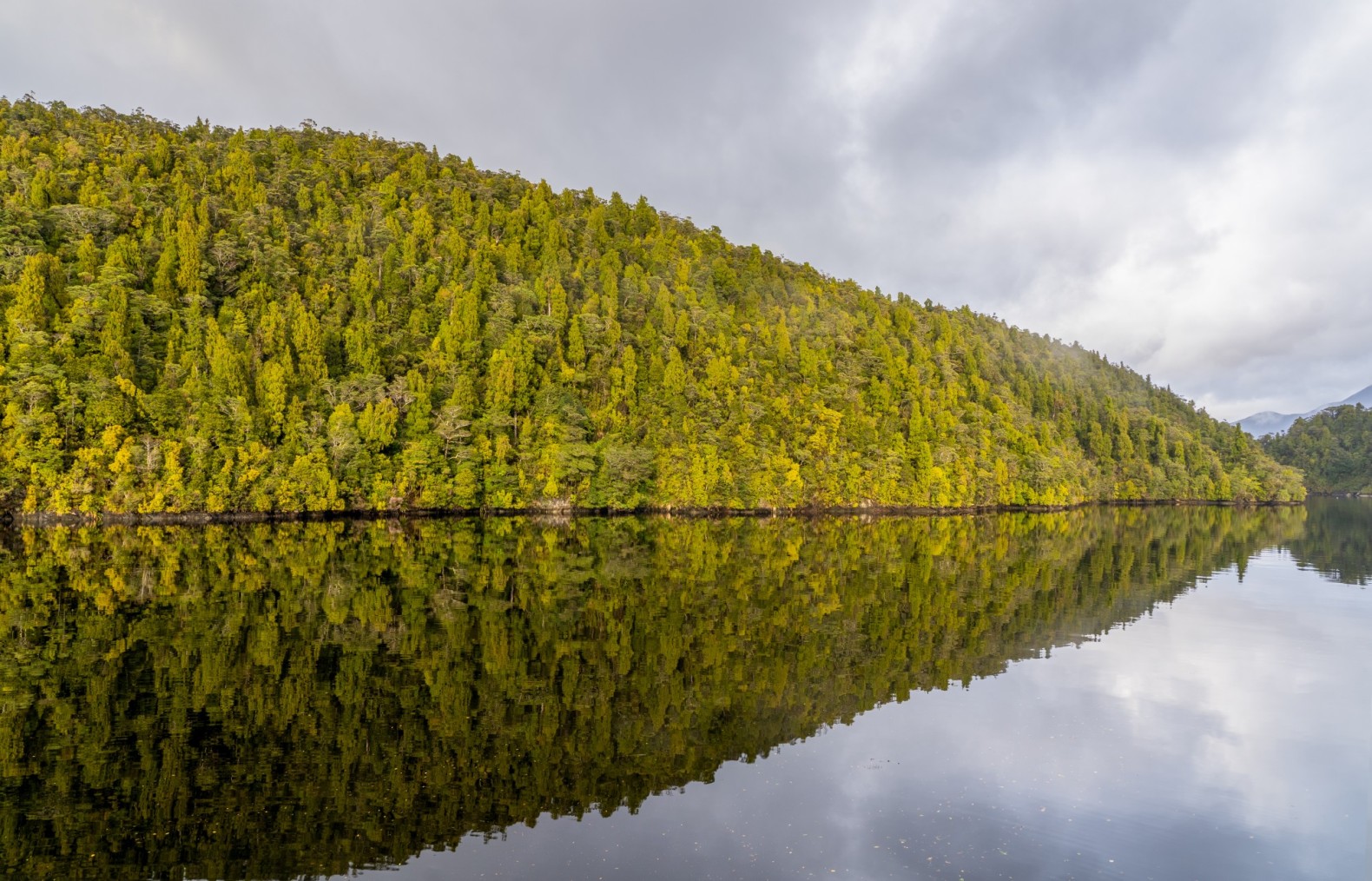
Sustainability
Our environmental strategy is emerging from a space of deep loving connection to the living being of Fiordland. It is our honour to be her custodians, our pleasure to love her and our duty to protect her.
As for me, since I was a small boy, this home of mine has been full of wonder and mystery. Having spent my whole life here, I treasure the sight of every blue penguin - that is a rare and happy day. I am still, after all these years, in deep awe at the sight of the whales migrating. The whistles of the dolphins can take me out of the deepest blues and hearing a kiwi in the morning - well, that’s a special kind of a treat I wish we all could have more of!
We have truly been given so much. Giving back means simply leaving no trace. Staying on track, leaving no rubbish, kayaking to special spots. And in the bigger picture, it means optimising our resource use, neutralising our carbon footprint and strengthening our sustainability networks.
Learn about the ways we are doing this and get inspired to get on board!
Rob Swale, Owner CEO
We are all connected, quite literally. Knowing our responsibility, here at Fiordland Discovery and on the Fiordland Jewel, we are actively collaborating with contractors and suppliers who do good for the environment and for the people.
That ranges from the food and drinks we serve, the products we clean with, to how we support our allies to participate more in the efforts to be fair to our environment.
Guests are also indispensable in our efforts to be gentle to our environment in many small and big ways.
Here are some ways guests can help us reduce resource use:
- Turning off the lights and heating when not needed
- Sorting their waste in the bins provided
- Reusing linens and towels
- Using biodegradable toiletries or the ones we have provided in the cabins
- Take our van transport instead of coming by car
- Neutralise their carbon footprint by planting native trees and joining in our collaboration with the Waste to Wilderness project
Here at Fiordland Discovery we support The Tiaki Promise, a commitment to care for New Zealand, for now, and for future generations and encourage you to do so, too.

Guests will notice when they open the tap, there is warm water coming out...
Well, this is due to our ring main water piping system (or circulatory heated water reticulation). Besides being super convenient, this system is effectively reducing wastage of water and energy that goes into desalinisation.
Next on the list of our successful solutions feature self-closing taps, designed to automatically shut off the flow of water after a pre-set time, ensuring precious resources are conserved.
We are passionate about incorporating innovation into the heart of what we do and here are some more of our efficiency features and new developments:
- Diesel generator newly optimised for more efficient energy generation
- Lithium ion batteries installed so that the generator can be shut down at night, minimising omissions and noise pollution
- Remote engineering control and diagnostics
- Air conditioning and air-based heat pump appliances
- Energy efficient lighting: LEDs
How we are preventing waste and minimising our carbon footprint:
- By catching the main meal most of the time on our longer expedition cruises; fish like blue cod
- As much as is possible we try to ensure that everything enjoyed by our guests onboard the Fiordland Jewel is sourced from New Zealand, and the surrounding areas of Fiordland in the South Island. This includes: Fresh and seasonal produce, beverages including soft drinks, wine and beer... guest ammenities and our New Zealand made wool topped mattresses.
- By asking our suppliers to only send our orders made from recyclable materials such as boxes and paper bags
We are tracking our emissions, adding up all the different stages of our journey: transport to and from the Fiordland Jewel, bringing the goods needed and waste produced, the fuel used to power our cruises and even the initial carbon footprint of the Fiordland Jewel’s construction is included.
Price we pay for emissions
That question is a complex one to answer. In order to arrive at the price-tag of it, we need to find a way to measure how much damage every tonne of CO2 actually does cause. And with that, we are trusting educated and dedicated people who have spent years doing this, and who call this number the “social cost of carbon dioxide”.
The social cost of carbon dioxide (SC-CO2) measures the monetised value of the damage to society caused by an incremental metric tonne of CO2 emissions and is a key metric informing climate policy. Used by governments and other decision-makers in benefit–cost analysis for over a decade, SC-CO2 estimates draw on climate science, economics, demography and other disciplines.
In order to give our best effort to “make it up to her”, we have chosen to calculate the offset price according to the most realistic numbers for SC-CO2 currently available, not the cheapest ones or the most widely used ones. *
Those have been calculated by a recent comprehensive study published in the journal Nature ** by Rennert et al. (2022), attaching a price tag of NZ$296 to every tonne of emitted CO2. Bringing it to kilos and rounding up, it is 30 cents per kg of CO2.
(NZ$296 = US$185, 1 tonne = 1000 kg)
* In the recent calculation we have done for the Fiordland Jewel, a higher SC-CO2 of NZ$288 NZD per ton (US$185) has been chosen as suggested by Rennert et al. (2022), for the estimations of carbon offsetting contributions. It is argued that the higher figure leads to a more realistic determination of the social burden generated by carbon emissions. Arguably, the current traded price for emissions is far below the true cost of climate change to society generated by the emissions. (like the one by the US Government of US$51 per ton).
** Nature is a renowned weekly international journal publishing the finest peer-reviewed research in all fields of science and technology. Nature also provides rapid, authoritative, insightful and arresting news and interpretation of topical and coming trends affecting science, scientists and the wider public.
Carbon Offset Calculations
Ok, finally getting to the crunchy part: we take our daily emissions of 37.2 kg of CO2 per person per night and multiply it with the social cost of carbon dioxide,
1 night x 58 kg CO2 x 0,296 NZ$/kgCO2 = NZ$17
This includes not only the emissions from the trip but also a payback of the historical climate debt from the construction of the vessel, with an offset price for six nights being NZ$103.
But, if you have had the pleasure of being flown in on a helicopter, this price might go up quite substantially.
For a one-way transfer, add NZ$54, and for a round-trip, NZ$108.
Food and beverages
We want to nourish you, delight you and inspire you.
Truly good food is our birthright, nowadays becoming more of a privilege, but above all, good food is such a joy - both to discover and to digest.
Our small team is mindful of locality, seasonality, organic practices and fair trade when sourcing food and beverage products and partners.
And when it comes to preparation, we practice the art of balance, the middle way if you will. Health should not be achieved at the expense of pleasure and vice versa. We want the best of all worlds and here the alchemy of daily creation emerges.
Nourishing food
Ok, we admit that we are enormously blessed by an abundance of 'fresh wild fish' here in Fiordland. To pair that accordingly, we serve only non-spray local organic vegetables whenever possible.
We use local meat suppliers, and all our seafood is sourced from the South Island only.
As an example, our venison is wild caught in Fiordland, helping to preserve our natural flora from this introduced species, being one of the healthiest, heart-healthy meats available. For WithWild our supplier the recipe is quite straight forward, they want to continue to grow their positive impact in National Parks and conservation land throughout Aotearoa, New Zealand, working with organisations that share their values and mindset. The primary aim of these partnerships is to deliver enhanced conservation outcomes in areas that have introduced species that require management to reduce their impact on our native flora and fauna.
Beverages
Karma Drinks - here are some of their quotes that have inspired us to have their drinks onboard for guests to enjoy.
- Given that one of the world's most prolific beverage brands sells around 1.9 billion soft drinks a day and is also the world's largest fossil fuel plastic polluter, our challenge has been to give our industry a good name.
Anyone who’s ever bought one of our organic and Fairtrade fizzies has enabled The Karma Foundation to accomplish life changing initiatives for the communities of farmers who grow our cola nuts in Sierra Leone. 1% of revenue from every soda supports projects across: Education, Governance & Accountability, Health & Wellbeing, Sustainability, Infrastructure & Local Enterprise & Sustainable Livelihoods
Regenerative Farming - We work with our communities in Sierra Leone to resurrect traditional forest farming, protecting the rainforest with every season.
Plastic free - Karma Drinks have never been served in plastic, and we’re pretty proud of that. And now we've just removed a further 1.4 tonnes of plastic from our supply chain. We’re always on the mission to be better for our planet.
Forever organic - are proudly certified organic by the Soil Association, which means reducing the amount of toxins put into the earth with every drink and protecting the soil to keep our future harvests safe. This guarantees the best quality drinks from our planet and for you
Wine
The wines we have chosen to present to our guests on board, are all sourced locally from the Central Otago region, the closest wine region to Fiordland and are either fully Certified Organic, or practicing organic winemaking principles.
Beer
Our beers are locally sourced from Altitude Brewing Queenstown - here are some of the reasons that we have been inspired to have their beers onboard for guests to enjoy.
Local ingredients - The hops are locally sourced from Garston (Southland), their project partner since the first 800 plants in 2016, to purchase over 1 tonne from last year’s crop.
Reducing waste - The left-over grain from brewing, also called the Spent grain, is fed to sheep and cattle and is used to make bread in local restaurants. And as for the spent hop material, it is being collected and used as part of the Waste to Wilderness program to give native plants everything they need to rewild an area.
Reducing carbon footprint - Altitude is consciously choosing to use cans instead of glass to reduce shipping weight. They can also have their beer canned on site at Frankton Marina in Queenstown.
Below are some of the suppliers that we have choosen to work with who are dedicated to doing good for the environment and for the people.
Comfi - Aside from being an incredibly super comfy mattress made with sustainably sourced materials including wool here in New Zealand - they also have a social purpose hand sewn into every centimetre.
The team at Comfi supports grassroots charities Buttabean Motivation and Woven Earth to get beds to kids who need them. Every five Comfi beds sold, they will donate a complete sleep solution to a Kiwi family in need – the bed, the base and the pillow.
Sans [ceuticals] - Our in cabin toiletries include their PH Perfect Hand & Body Wash, Balancing Hair Wash along with a Nourishing Hydratant Conditioner.
Made in New Zealand, and crafted using natural active ingredients. Sans [ceuticals] is without: animal testing, artificial colours or bleaches, artificial fragrances, aluminium/alumina, mineral oils, sulfates, silicones, steroids, petrochemicals, parabens, phthalates, vinyls, PEGs, PPG, DEAS, TEA.
Temuka Pottery - A favourite in New Zealand households since 1931 Temuka Pottery is a reliable, hardworking New Zealand icon that has stood the test of time.
Our plates and bowls onboard are made from hand-thrown original models. The potter’s finger marks are embossed in the clay as they process the product on the potter’s wheel. These marks create hold points, runs and pools in the hand-applied glaze finish. The colour way Sea Spray celebrates the beautiful erratic whitecaps we are often privileged to see on our travels. A stunning reactive glaze that speaks of the wilderness of the Fiordland coastline while showcasing an exceptional level of craftsmanship.
OCHO is committed to ethical and sustainable practices from bean to bar. Their chocolates are minimally processed to perfection with minimal ingredients to maximise the cocoa beans taste. Grown in the pacific and crafted in Dunedin, OCHO really does have pure chocolate. All their bars are made with beans from a specific farm or farmer cooperative.
Pukka Teas - Pukka’s purpose is to nurture healthier, happier lives through powerful organic plants. When Pukka’s Co-Founders established Pukka in 2001, they sought to create a business that would benefit the health of people, plants and the planet. You'll find a selection of their delicious teas onboard the Fiordland Jewel.

